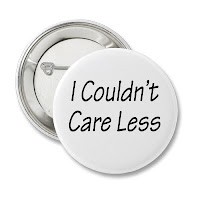Invading our children’s privacy
I really enjoy listening to The Current on CBC Radio One as I drive into work. This week, on Monday Febraury 4, the program broadcast an episode entitled “The Heavy: A Mother, A Daughter, A Diet”.
The show, hosted by Anna Maria Termonti, delves into the experience of Dara-Lynn Weiss, the mother who put her 7-year old clinically obese daughter on a diet and wrote the book The Heavy documenting their journey. Dara-Lyn speaks with Anna Maria about the response she recieved from other parents while she was helping her child struggle with obesity by monitoring and restricting her food intake, as well as the ways in which she has been challenged for writing about it in Vogue Magazine.
What I found most intersting about the show was the way in which the panelists Shelly Russell-Mayhew, a registered psychologist and Associate Professor of educational psychology at the University of Calgary, and Tom Warshawski, a pediatrician and Chair of the Childhood Obesity Foundation, evaded talking about the issue of parents invading their children’s privacy through this type of disclosure. Questions were directly asked of them by Anna Maria after a third panelist Katrina Onstad, a journalist, author and the editor of two collections of essays on motherhood Because I Love Her and Between Interruptions, introduced the issue.
Onstad noted her discomfort with the ways in which some parents tell the stories of children without their permission. She further suggests that when parents tell the stories of their children they are comodifying their children’s childhood and turning their lives into an entertainment show. She also wonders if 10 years down the road we won’t see the effects of professional writing about our children’s lives and warns that the electronic footprints of such public stoies about a child’s private struggles can’t be scrubbed away.
I’ve been asking the same types of questions about the responsibility and accountablilty of parents who blog about their children, who post photos of their children on line, and who disclose information about their children without their children’s consent or without their children understanding the complexities of posting stories about them for the world to read, see and judge.
I, too, wonder what the response will be of those same children when they are old enough to understand the consequences of their parents’ actions that have shown little regard for their privacy or agency. I fear for the emotional well being of the children, for the relationships between children and parents, and for the parents down the line.
While this is an uncomfortable conversation to have, I believe we need to think about the ways in which we dis/respect our children through our actions as adults and parents and talk about how we may go about making changes in our behaviour and attitudes that honour the privacy and dignity of children.
The show, hosted by Anna Maria Termonti, delves into the experience of Dara-Lynn Weiss, the mother who put her 7-year old clinically obese daughter on a diet and wrote the book The Heavy documenting their journey. Dara-Lyn speaks with Anna Maria about the response she recieved from other parents while she was helping her child struggle with obesity by monitoring and restricting her food intake, as well as the ways in which she has been challenged for writing about it in Vogue Magazine.
What I found most intersting about the show was the way in which the panelists Shelly Russell-Mayhew, a registered psychologist and Associate Professor of educational psychology at the University of Calgary, and Tom Warshawski, a pediatrician and Chair of the Childhood Obesity Foundation, evaded talking about the issue of parents invading their children’s privacy through this type of disclosure. Questions were directly asked of them by Anna Maria after a third panelist Katrina Onstad, a journalist, author and the editor of two collections of essays on motherhood Because I Love Her and Between Interruptions, introduced the issue.
Onstad noted her discomfort with the ways in which some parents tell the stories of children without their permission. She further suggests that when parents tell the stories of their children they are comodifying their children’s childhood and turning their lives into an entertainment show. She also wonders if 10 years down the road we won’t see the effects of professional writing about our children’s lives and warns that the electronic footprints of such public stoies about a child’s private struggles can’t be scrubbed away.
I’ve been asking the same types of questions about the responsibility and accountablilty of parents who blog about their children, who post photos of their children on line, and who disclose information about their children without their children’s consent or without their children understanding the complexities of posting stories about them for the world to read, see and judge.
I, too, wonder what the response will be of those same children when they are old enough to understand the consequences of their parents’ actions that have shown little regard for their privacy or agency. I fear for the emotional well being of the children, for the relationships between children and parents, and for the parents down the line.
While this is an uncomfortable conversation to have, I believe we need to think about the ways in which we dis/respect our children through our actions as adults and parents and talk about how we may go about making changes in our behaviour and attitudes that honour the privacy and dignity of children.



Comments
Post a Comment